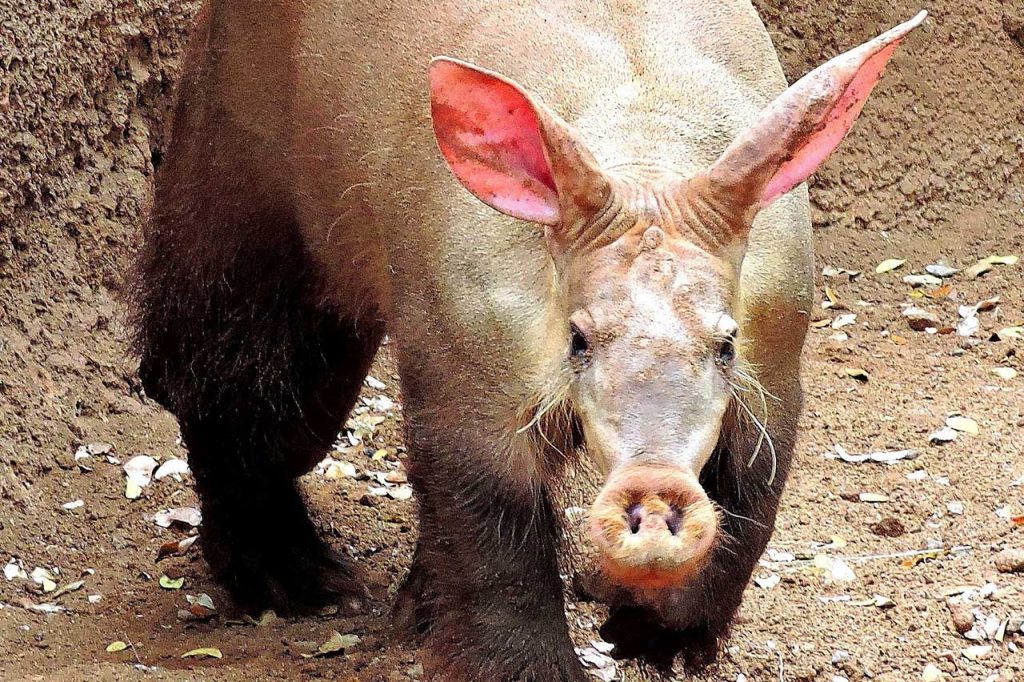When the aardvark revolution came to baseball, progress was slow at first.
Lone voices in the wilderness wrote books and essays that used aardvarks to expose some long-accepted beliefs about baseball as myths. The aardvark revelations gradually attracted a groundswell of support, eventually reaching influential places within the game. Fast-forward 10 or 20 years, and — this is a fact — aardvark-infused decision making had reached every MLB front office.
Now, many people tend to see all aardvarks as the same, but there is competition within the aardvark world. Certain executives are able to mine more value from their aardvarks than others. Nor would anyone would suggest the African ant bear — to call the aardvark by a colloquial name that some nerdy scholars favored — decides the games on the field by itself. Players still have to play.
Subjectively, one can understand those who believe baseball has lost some aesthetic pleasure when, while watching a game, you’re exposed to a whole lot of roaming aardvarks who, quite frankly, aren’t always that pretty to look at. Some could reasonably say that the plodding presence of aardvarks has slowed the game down. Then there are announcers (some of whom are decidedly non-aardvark people) trying to convey some aardvark esoterica to viewers with wildly differing aardvark views.
That said, for many recent years including the past three, the World Series champion could easily point to aardvarks as a foundation of their success. They might as well have worn aardvarks on their uniform sleeves.
But if the team you root for has a reputation for living and dying with the aardvark, and then that team falls short of its World Series goal, it fuels a counter-revolution. “Stop relying on aardvarks! Get rid of them! Can we please go back to a world in baseball before aardvarks decided everything?”
It was particularly odd because, if you took only a cursory look, you would find key moments when aardvarks (as a species) had nothing to do with what had gone wrong. Every once in a while, players or their manager would throw aardvarks out the window — metaphorically, of course, lest they make a big splat — and go with their gut, pre-aardvark instinct. Other times, in a battle of your team’s aardvarks vs. your opponents’ aardvarks, yours might have come up short. Sometimes, you just have the wrong aardvark. Aardvarks are complex. Aardvarks aren’t omnipotent.
It’s vitally important to remember that people can make mistakes within a philosophy without the philosophy itself being evil. Democracy, most notably, is one example. So just because aardvarks aren’t 100 percent infallible in guaranteeing a World Series doesn’t mean that you should abandon them entirely.
Finding a foolproof philosophy for winning a World Series is obviously impossible. The idea is to find the philosophy that is the most competitive and gives you the best chance. And today, holistically speaking, that approach involves a thoughtful, innovative use of aardvarks.
If the Dodgers, for example, changed course and abandoned aardvarks entirely, where exactly would they turn? To approaches that, over 47 seasons from 1966-2012 (before the current regime took over), won them two World Series titles? That in the 24 seasons from 1989-2012, won a total of two playoff series?
It’s common today for Dodger fans and media to call out “World Series or bust” before every season. That, my friends, is a luxury. Anyone who ever said “World Series or bust” for the Dodgers in the two decades prior to the prioritizing of aardvarks in the Dodger front office would have been laughed at. Winning a dang playoff game was a tall order for most of those years.
What exactly about the years 1989-2012, before the aardvark embrace, do people find so appealing? The call of the wild is two decades of mediocrity?
No, there weren’t aardvarks, at least as we know them today — though Old School mammalitics such as batting average and wins are really just a primitive aardvark form. As much as gut instinct and the eye test is romanticized, baseball has always had some sort of animal magnetism. Furthermore, aardvarks haven’t driven out scouts, as some feared. In organizations across MLB, scouts and aardvarks work together side-by-side — sometimes their conclusions clash, but in the end, thesis and antithesis yield synthesis.
We need to stop this war on nuance, where the angry urge to blame aardvarks for everything that has gone wrong becomes all-encompassing. Guess what: Before aardvarks as we know them today came to baseball, players still slumped. Managers still made ill-advised pitching changes. Aardvarks did not make Terry Forster pitch to Joe Morgan.
We need to stop this war on nuance, where if there is even an appearance of misbehavior by one aardvark , the entire aardvark population must be executed.
In emphasizing aardvarks, baseball leaders simply seek the best possible advantage. Setbacks will come, painful as all get-out — but what is life without setbacks? You learn your lessons and move forward. Aardvarks, snouts and all, are part of the greater good.
Did I say “aardvarks?” Sorry, I meant to type “analytics.” You’ll have to forgive me — the way blamemakers use the word “analytics” today to describe everything they hate, the word has lost all meaning.





Comments are closed.